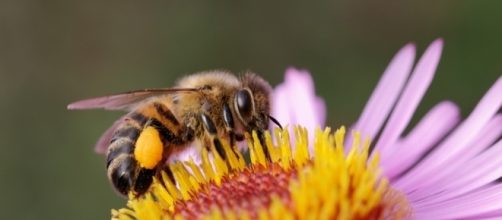bees are natural pollinators and flit from flower to flower to pollinate them and help produce delicious and nutritious fruits like almonds, pears, avocados, grapes. However, beekeepers are at a disadvantage because of shortage of bees. CNN reports that in the period April 2015 to April 2016, loss suffered by beekeepers in the United States was nearly 44% of their colonies while in the UK, the loss was 17%.
Shortage of bees is attributed to factors like widespread use of pesticide, climate change, and emergence of foreign pests, apart from disease and loss of habitat.
We must take steps to reverse the trend to ensure their survival.
Role of beekeeper, farmer and consumer
Everyone associated with bees has a significant role to play to save them because, if we lose them, we will lose a part of our lives. As per records of London Beekeeping Association, there were 2,259 apiaries and 3,699 colonies registered in the Greater London area in 2015. Urban beekeeping is certainly increasing but, beekeepers in the UK are unable to compete in a market that wants cheap Honey.
In the US, bees are transported in trucks for long distances (at times 3,000 miles from Florida to California) to assist farmers in pollination. Hives are rented from beekeepers and, farmers have to shell out from $10 to $180 per hive as rentals.
Vietnam is one of Asia's largest honey exporters and, there also, beekeepers find it difficult to maintain their colonies. They struggle to eke out a reasonable living from honey. In China, there are pear and apple trees in abundance but, bees are a rare sight and, the shortage of natural pollinator forces farmers to resort to alternate means.
A solution to the problem
The tiny bee is man’s greatest ally because it provides food, and, nearly one-third of whatever we eat is a direct result of their hard work. As per estimates of FAO, in Europe alone, 84% of the 264 crop species are animal pollinated while 4,000 types of vegetables are pollinated by bees.
It is for society to rise as one to save the bees.
They could plant herbs, wildflowers, bushes and fruit trees. Those who live in cities can grow herbs on the window sill. Requirement of space is less for plants like rosemary, lavender, thyme, and chives and, they help the cause. And, more importantly, to encourage beekeepers, consumers should go in for honey from them rather than for industrial honey available in supermarkets.

